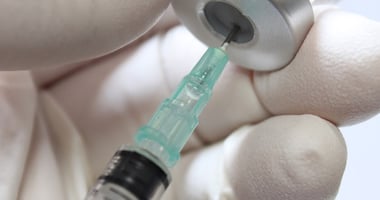Schizophrenia patients with severe grandiosity (an inflated sense of self) may be more likely to...
LAI Antipsychotics Associated With Diminishing Risk of Relapse but Risk Remains High

The risk of relapse was highest during the first year after initiating an LAI antipsychotic and then diminished over time, with almost no events occurring after five years. This finding indicates that long-term, continuous antipsychotic use does not cause the brain to become supersensitive to dopamine and thus reduce antipsychotic efficacy, wrote lead author Jari Tiihonen, M.D., of the University of Eastern Finland, and colleagues.
The researchers used a Finnish national registry of inpatient care to identify all persons age 45 or younger who experienced first-episode psychosis between 1996 and 2014. Of these, 305 patients (average age 31.7; 66.2% men) started using LAI antipsychotics within the first 30 days of follow-up. Among these patients, 122 (40%) received risperidone, 57 (19%) received zuclopenthixol, 52 (17%) received perphenazine, 32 (10%) received olanzapine, 23 (8%) received haloperidol, and 19 (6%) received other LAIs.
They were followed for up to 10 years. The primary outcome was severe relapse leading to hospitalization; the secondary outcome was the incidence of relapse from year to year, calculated by dividing the number of events by person-years during each period of interest.
Cumulatively over the 10-year period, 45% of patients using LAI antipsychotics experienced a relapse. However, the incidence of relapse diminished dramatically over time—from 0.26 events per person-year during the first year to 0.05 during the fifth year. During years six to 10, only four relapses occurred over 128 person-years.
“Our results argue against breakthrough psychosis being attributable to long-term D2 [receptor] blockade and putative development of dopamine supersensitivity,” the researchers wrote. Rather, they suggest “that neurotransmitters other than dopamine or other biological processes likely contribute to reemerging symptoms.”
But because many relapses cannot be prevented even with continuous D2 receptor blockade, treatments with novel mechanisms of action are needed, the researchers continued.
For additional information, see the Psychiatric News article “LAI Antipsychotics Beat Oral Meds for Preventing Relapse, Hospitalization.”
(Image: Getty Images/iStock/Matic Pribozic)
Don't miss out! To learn about newly posted articles in Psychiatric News, please sign up here.





